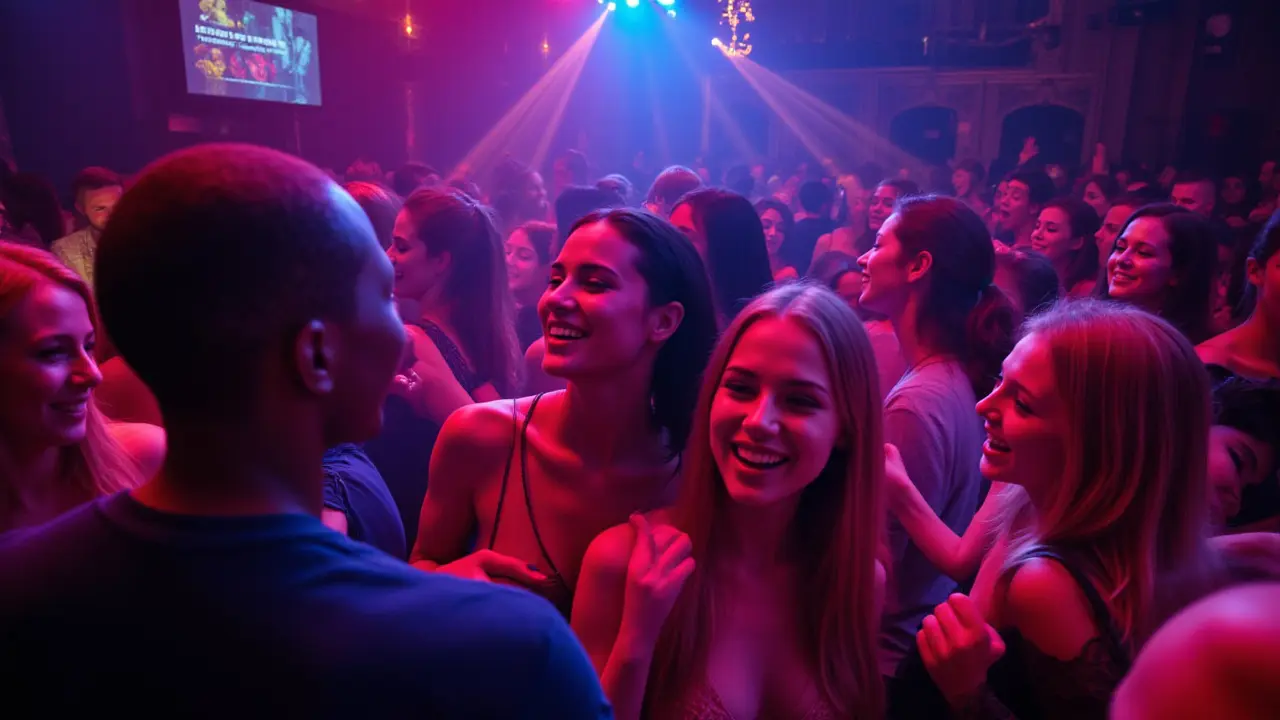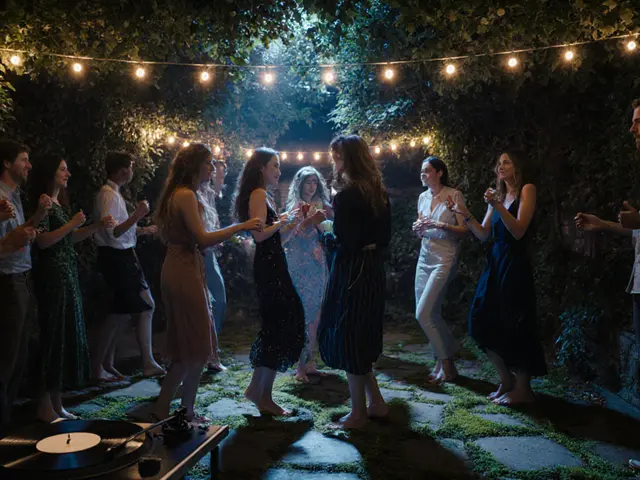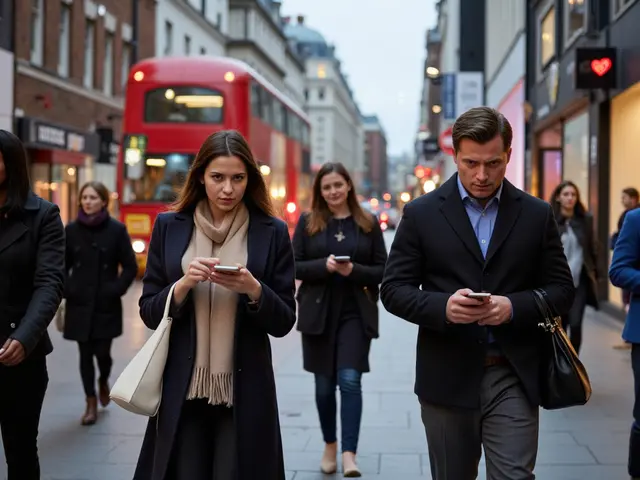Strobe lights. Bumping bass. Bodies packed on the dance floor. Clubbing: just wild fun or a legit mood booster? That’s the debate lighting up psychologist forums and TikTok threads alike. Ask ten people why they go out to clubs, and you’ll get answers like “to let loose,” “meet new faces,” or even “shake off a bad week.” But when you look beneath the neon glow, the reasons reach way deeper. Clubbing is tied to real changes in your brain and behavior—some pretty unexpected. If you’ve ever left a club at sunrise feeling oddly happy (or even slightly transformed), you might wonder: is clubbing secretly good for your mind? Or are there hidden traps in the playlist?
The Social Side: Human Connection on the Dance Floor
Humans are wired for connection. According to a 2023 Gallup poll, people with robust social ties report the highest levels of mental well-being. Now, think about clubs: packed dance floors, spontaneous conversations, hugs from old friends, and the random person who offers you gum with a wink. This isn’t small talk—it’s basically a real-time social experiment. Being in a crowd that’s moving together in rhythm can actually sync up heartbeats and moods. University College London ran a study where strangers danced in sync, and the results? Their pain thresholds rose. Dancing together literally made life feel easier—one theory is that it triggers endorphin releases. For shy types or those who struggle to meet people elsewhere, the structure of a club night (with built-in music, lights, and rituals like rounds of shots or shouty singalongs) can reduce anxiety and make socializing more natural. Friends I know—Lila included—have confessed they bonded with lifelong pals in the weird limbo after a club’s closing time, munching on greasy food and sharing stories. Of course, there are moments when crowds feel overwhelming, but most regular clubbers know that rhythm, laughter, and open faces do wonders for loneliness—at least for the night.
Music, Movement, and the Brain: Dancing Your Way to a Better Mood
Why does the beat drop feel like a rush? Music isn’t just entertainment—it’s therapy. A 2022 review from the American Psychological Association showed that rhythmic movement (yeah, even terrible dancing) hikes up dopamine, the brain’s “feel good” chemical. That’s why after a few hours in the club, you feel lighter, looser, maybe even euphoric. Movement breaks down physical tension, while familiar songs conjure memories and feelings that daily life suppresses. When you dance with others, you share this energy—this actually activates parts of your brain linked to trust and social bonding. Neuroscientists in Sweden found that dancing in sync can regulate stress hormones. The more out of your head you get on the floor, the more your body finds balance between adrenaline and calm. Sometimes, I’ll see guys who can barely muster a foot tap at home suddenly moving like backup dancers in the club, their faces lit up. Why the transformation? Clubs are designed to lower inhibitions: lights, fog machines, and volume all mess with regular cues. And it’s not just subjective. When researchers track mood scores before and after a clubbing night, there’s a spike in reported happiness and a drop in reported stress—not just for extroverts, but for all types.

The Double-Edged Sword: Clubbing’s Risks for Mental Health
This isn’t all glowsticks and serotonin. Too much clubbing comes with pitfalls—especially if it slips into substance abuse, chronic sleep disruption, or high-risk behavior. The British Psychological Society published findings in 2024 linking frequent all-nighters to higher rates of anxiety and burnout. And no, alcohol isn’t a magic potion: while it lowers inhibitions, excessive drinking can make existing mental health problems worse. There’s also FOMO—the gut-punch “fear of missing out.” Social feeds packed with club selfies can trigger envy or anxiety in anyone who feels left out. Plus, the natural social comparison amps up: Did I look as cool? Did I even have fun, or just pretend? These thoughts spiral, fast. For people already struggling with depression or social anxiety, clubbing sometimes brings mixed results. Some feel relieved for a night, only to crash hard the next morning. That “post-club comedown” is a real thing—your neurochemistry is swinging back after hours of stimulation. Do your body and mind a favor: hydrate, let yourself rest, and don’t make clubbing your only social outlet. Moderation turns clubbing into a tool—not a crutch.
Making the Most of Your Night Out: Tips for Clubbing with Mental Health in Mind
Clubbing can be a highlight, a reset button, or a disaster, depending on how you plan it. Here’s what I’ve learned in years of trying every vibe, from packed raves to cozy jazz nights. First, go with people who actually boost your mood—friends you trust to stick together, not ditch you the second the music drops. Set expectations: if you know clubs are loud—bring earplugs. If you hate crowds, pick off-peak nights or find smaller venues. Don’t treat clubbing as a magic fix for your stress or sadness. It’s way more sustainable as a treat, not the whole diet. Skip the marathon sessions: limit how much you drink, never mix substances, and try to eat first. More than once, Lila and I ended club nights early just to do street food or walk Ruff by the river. You don’t have to stay out till sunrise (unless you’re chasing an epic moment). Take breaks to check in with yourself. If you start feeling anxious, step outside—even five minutes can help. And don’t forget, clubbing is what you make it: dance like nobody’s watching, yes, but also listen to your body and set boundaries, whether that’s about energies, noise, or even the people around you.

What the Data and Stories Say: Is Clubbing Actually Worth It?
Let’s check the actual numbers and stories, not just theories. The latest report from Statista (2025) says that nearly 27% of adults aged 18-35 club at least once a month. Of those, 61% say it boosts their mood and helps them de-stress. But 16% report the opposite—they feel worse the next day, mostly because of hangovers or social regrets. Those who combine clubbing with healthy routines—like regular sleep, exercise, and downtime—score far higher on “thriving” scales than those who use it to escape daily life. I’ve seen it with friends, too. The best nights aren’t always the wildest, but the ones where you felt connected—to music, to people, to a moment bigger than your worries. Sometimes that’s a sweaty dance, a midnight confession, or an awkward but thrilling slow song. When you club smart, it’s not a cure for all your problems—but it can absolutely be a boost. If nothing else, you’ll head home with a wild story, a sense of belonging, or just really tired feet. Here’s a quick glimpse at the facts:
| Clubbing Frequency | Mood Improvement (%) | Reported Burnout (%) |
|---|---|---|
| 1-2 times/month | 68 | 14 |
| 3+ times/month | 55 | 29 |
So trust the science and your gut. The dance floor can be medicine for the restlessmind—as long as you use it wisely. And if you dance with as much abandon as Ruff chasing a tennis ball, you’re probably doing something right.







